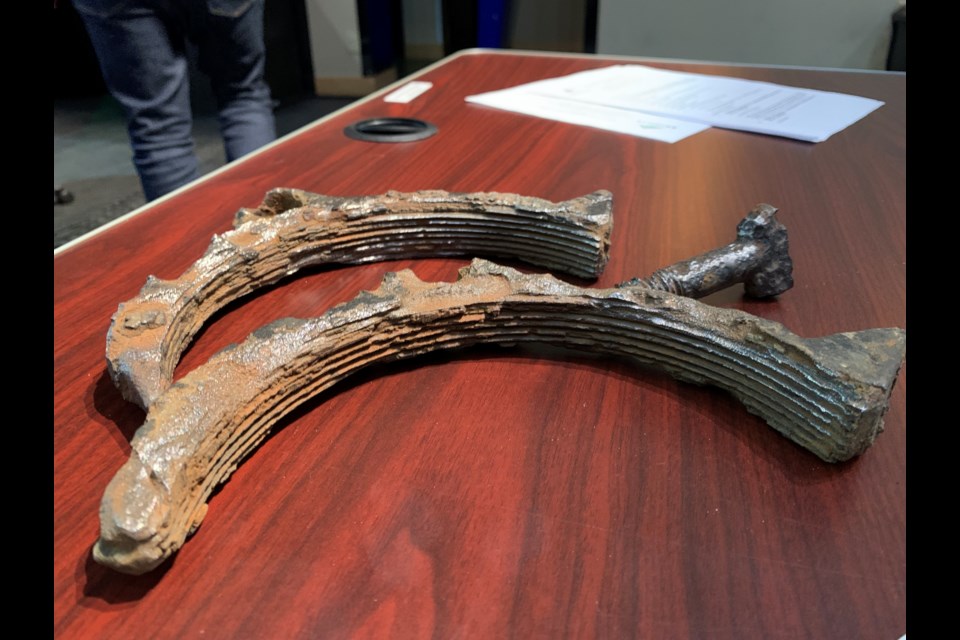As the Resort Municipality of Whistler (RMOW) approaches its 50th birthday, a significant portion of its sewer and water system is coming due for an upgrade.
To that end, the RMOW’s 2023 budget includes more than $14 million in water ($4 million) and sewer ($10 million) upgrades.
“Whistler is at an interesting time in its history, in that we're replacing a lot of below-grade infrastructure that was originally put there at Whistler's founding,” Mayor Jack Crompton said. “I've joked in the past that we're doing some knee and hip replacements. And that’s certainly the phase that we're in right now, replacing a lot of infrastructure that's been in the ground for a very long time.”
Major water and sewer projects on the workplan for 2023 include (but are not limited to): the South Whistler Water Supply upgrade; water system valve and fitting replacement; sewer main and manhole lining; and a roof replacement at the Wastewater Treatment Plant.
Whistler’s mayor and council approved bids for several of the projects at recent meetings.
On May 2, the RMOW awarded a contract worth $2,097,000 to Drake Excavating to complete the first phase of civil works on the South Whistler Water Supply (SWWS).
Phase 1 of the project involves installing new water main sections to integrate with the water systems in Function and Cheakamus. Phase 2 involves building a water pump and pH treatment station adjacent to the existing Cheakamus Crossing well and pump station.
The RMOW budgeted $2.5 million for the work in 2023; $4.2 million in 2024; and $150,000 in 2025 for a total project budget of $6.85 million.
Once completed, the upgrade will reduce the redundancy of the water supply to Cheakamus Crossing; help reduce corrosion in the pipe system; and provide pH correction that will help the municipality meet provincial water quality regulations.
pH is one of the main factors that determine a water’s acidity—and in turn, how corrosive it is when interacting with things like pipes and plumbing fixtures.
Corrosive water can leech metals like lead and copper into drinking water, which is why the RMOW continues to remind residents and guests to flush their taps until the water is cold before drinking it.
Health Canada’s drinking water guidelines recommend a pH of at least 7.0. Currently, the Cheakamus Water System has a pH level of about 6.4, according to a report to council.
The RMOW split the large project into two to account for supply chain limitations, the report said. Civil works will begin in 2023, with the more complex pump station and treatment facility scheduled to begin in Q4 2024.
The completed project will allow any excess supply from the SWWS to be pumped to the northern half of the resort during periods of high water demand. Access to the Whistler Interpretive Forest parking lot will be limited during construction.
“The benefits include additional water for Creekside and Village Zones when required,” capital projects manager Chelsey Roberts said in a presentation to council.
“We will address the corrosion management for drinking water, as well as upgrade assets and improve operational efficiency—and as always, upgrade safety for municipal staff.”
The contract comes on the heels of two similar bid approvals, including a $711,023 contract to Mar-Tech Underground Services to complete the Sewer Main and Manhole Lining project, and $1,311,532 to Coastal Mountain Excavations for the Water and Sewer Valve and Fitting Replacement project. Mayor and council approved those contracts on March 21.
Residents can expect water service shutdowns and interruptions during construction, and the municipality will deliver notices to impacted residents 72 hours before shutdowns.
According to RMOW general manager of infrastructure services James Hallisey, the fitting replacement project will replace a dozen heavily corroded pipe clusters across the municipality, helping to prevent system failures.
“We’ve had a series of water main and sewer main breaks, really from [the Village] all the way to Nicklaus North; some were relatively minor and easy to fix, [but] we had some pretty major ones that were expensive and hard to fix," Hallisey said.
"After that happened three or four times, the staff were like, ‘We can’t continue to work like this,’ so we got involved and had the consultant come in, did quite a few test digs, and they identified all the sites and prioritized them … Now we’re getting through all the highest-priority areas with the work this year.”
The 2023 budget includes a property tax increase of 8.4 per cent, along with a three per cent increase in the water parcel tax, a four per cent increase in solid waste user fees, and a five per cent for sewer parcel taxes.
The increase is necessary, in part, to pay for Whistler’s infrastructure upgrades.
“We pay what it costs to ensure a resilient sewer and water system,” Crompton said of the associated price tags.
“It probably costs more money than most people would guess, but they are critical expenditures for our community.”




